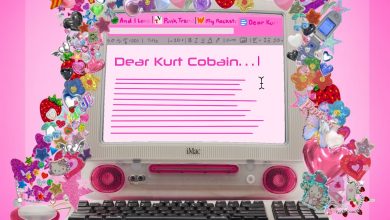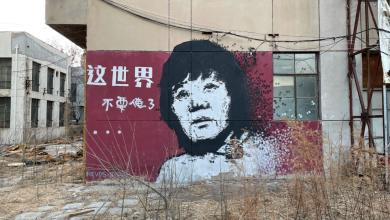Why Context Is Kind of a Big Deal
Context is way underrated.
It’s also a weirdly academic-sounding word that belongs in English essays, but, as sneaky as it is, it affects a large chunk of our actions and reactions day in and day out.
Context is defined as “the circumstances that form the setting for an event, statement, or idea, and in terms of which it can be fully understood and assessed.” Example one: the other day, one of my close friends came out as bisexual. No big deal? Yes, big deal. Not for me, and certainly not for my friends, but the occurrence of the situation is in fact a huge deal. There are two ways of looking at it: one, you look at it in a vacuum. Here’s this guy, he’s bisexual, he’s telling his friends. Friends say: “Okay, man. That’s cool.” Everyone’s happy. Life moves on and we all giggle over some Youtube videos of puppies.
Only, you could look at in another way: Here’s this guy, he’s bisexual. He lives in a country where 14 states still have not legalized gay marriage. He lives in a world in which deviance from heterosexuality has been, and many times still is, considered evil and a sin. He lives amongst people who still believe that “gay rights” is a debate to be had. He knows that “coming out” is many times followed by rejection and alienation for a lot of people. He knows that biphobia exists even within the queer community. He tells his friends.
This is an act of courage, and that – that makes it a big deal. That is why a tight hug and an assurance of support was in order – because of context, the current circumstances in which the event took place. If I walked up to my friends and said “Hey guys…so I have to tell you something. I’m heterosexual,” all I’d get would be funny looks, because we’re conditioned to view heterosexuality as the norm. It is the default, the ordinary.
That is the context, and it is sad, but true.
It’s very easy to ignore context, especially, and notoriously, in comedy.
The Daniel Tosh controversy in 2012 is probably the most oft-cited example of the worst kind of rape joke; in a nutshell, he was joking on stage about how rape jokes are funny, rape is hilarious (barf-worthy already), and a female audience member called out, “Actually rape jokes are never funny!” to which Tosh responded, “Wouldn’t it be funny if that girl [referring to her] got raped by like five guys? Like right now?”
Naturally, the Internet exploded, and rightly so. The issue here is not “rape jokes are never funny!” because jokes about rape can be made, and can be both empowering and cathartic – that is the beauty of tasteful comedy. It can critique, make people think, and make people laugh (see: Bo Burnham, your unproblematic white male fave).
The issue with Tosh’s “joke” is that he used it to humiliate and assert power. He made light of an act that is a barbaric theft of humanity, thus cultivating a sort of “We can laugh about it, it’s no big deal” attitude, which is unbelievably dangerous. Why? Context! The commodification and subjugation of women is an age-old evil which still persists to this day. It’s 2015 and still 1 in 5 women in the United States has been sexually assaulted in her lifetime. In many countries marital rape is still not punishable by law. The number one leading cause of rape is still considered “short skirts and alcohol” not “rapists.” We still debate the culpability of the rapist.
Hence, by joking about rape in way that humiliates the victim and puts the perpetrator in the position of power, you are contributing to the poisonous climate surrounding the issue, and normalizing something that needs to be taken seriously, to be remedied.
Following this discussion of context, we also need to discuss situations in which context probably plays less of a role: that is, situations which are essentially vacuums. In our day-to-day lives we flit in and out of different spheres of individual existence and interpersonal interaction. The very smallest sphere would be when we’re alone. The very largest would be our participation in mass media and entertainment.
Daniel Tosh’s grand fuck-up was on one of the largest scales possible, in which context is oh-so-important, and pretty much dictates how your presentation is received and understood. Here, your individuality isn’t important anymore, which means that if you say something problematic, you’re not going to have the luxury of people knowing that you’re actually just a nice person who happened to slip up. You are your words and your actions. You influence millions of people who view your material. You’re a part of an industry that basically dictates most of our societal expectations – and that is a huge, huge responsibility.
However, in an intimate setting like a group of friends just hanging out, the making of a tasteless comment, however insensitive, has less of a general impact. It’s still wrong and something to be pointed out, but the consequences are less dire and the visibility is greatly reduced. (Example: your friend walks into the room and says “Damn dude, I fucking raped that midterm,” and you say, “Hold up. No you didn’t,” and you explain why, and life moves on.) The cool thing about vacuum situations is that even if something problematic is said, if it’s coming from a person who you know genuinely does not have misogynist/racist/classist/ableist/transphobic beliefs, sometimes, you can let it slide (or don’t, that’s up to you).
Progress is made slowly. The end to cultural appropriation and problematic jokes will not happen magically in one day.
But it will begin when people start to understand that backlash does not happen because their actions were wrong in themselves, but because of the context in which they were made.
Personally, I don’t give a fuck if a white girl wears a bindi (I’m Indian). But I do know that if I wear a bindi I might get shit for it. I might get branded as “that Indian girl,” I might get boxed into stereotypes, I might be discriminated against, I might get accused of “not assimilating into Western culture.” But when she wears the bindi she’s edgy and cool and has two tickets to Coachella Weekend 1. She’s taking what I get flak for and making it a fashion statement simply because of her skin color – she’s asserting the power that historical context has bestowed her with, and it’s not her fault, and maybe she just really likes how she looks with a bindi, but tough luck girl, context comes up to bite us in the ass.
Maybe we’ll move from people saying stupid things on a mass scale to people saying stupid things only when their friends are around because of “political correctness.” Maybe they won’t realize why the things they can’t say are actually wrong.
For example, I have never said the word “n*gger” my whole life because I knew that it was politically incorrect, I just didn’t know why. But then when I read up more and learned about the big bag of context the word drags around with it, I genuinely realized why it was wrong.
Hopefully this is the progression that we’ll all make eventually. It’s a start – when people will stop hearing tasteless normalization of rape or rampant cultural appropriation in media and advertisements (see: Katy Perry, Iggy Azalea, Pharrell Williams, Urban Outfitters) and in larger spheres (gatherings, parties), they will stop spreading them, because it’s not a normal, regular thing anymore.
If you want to know more about cultural appropriation and context, check out this article.






This article is amazing. I wish more people in our society could understand how much context matters. And I’m glad that people like you are there to guide us.